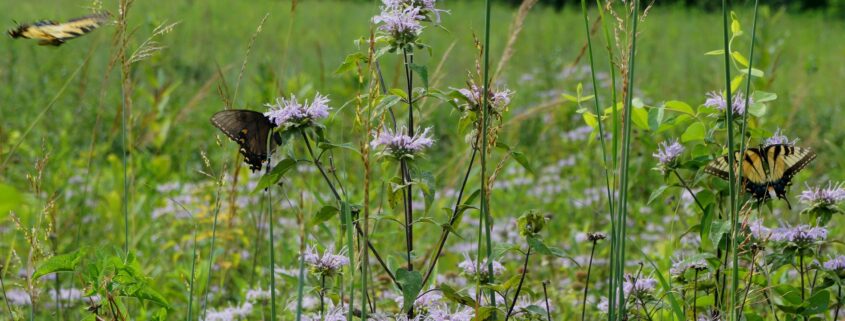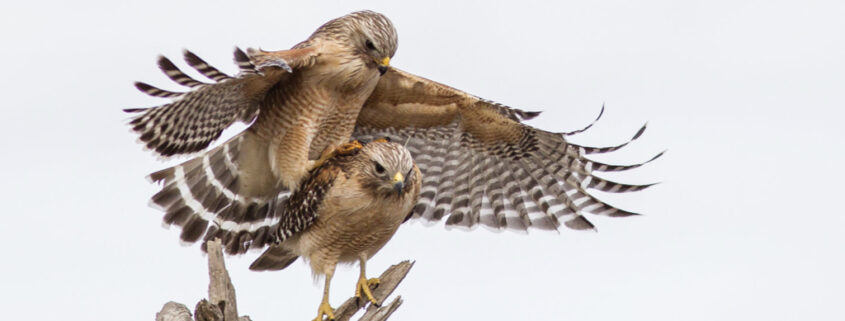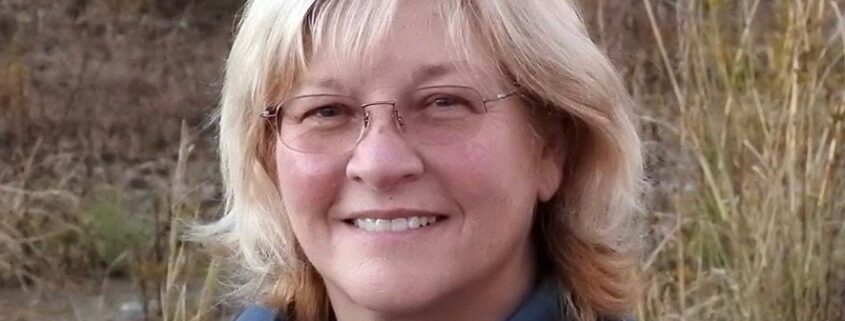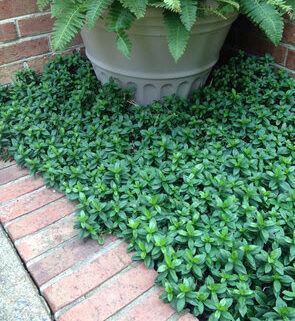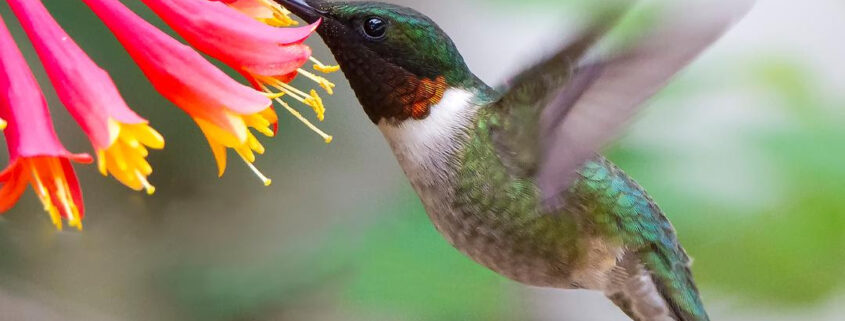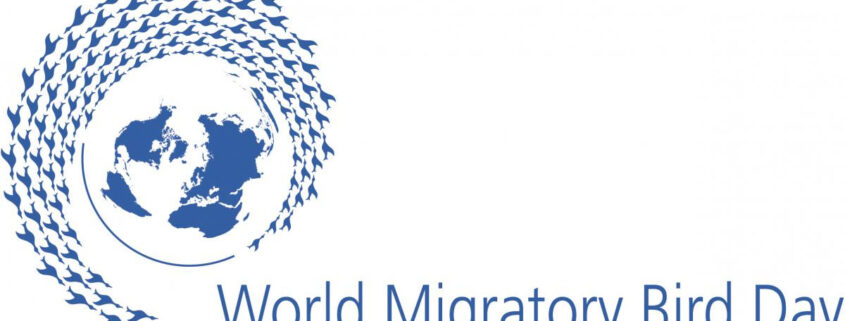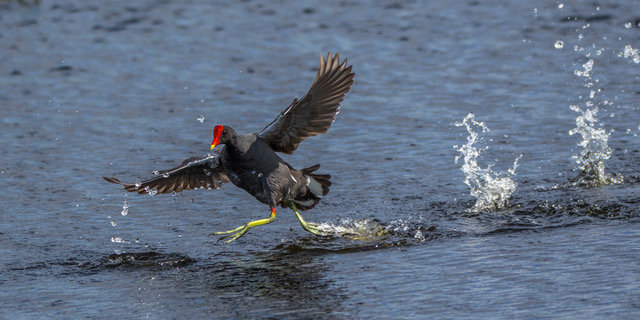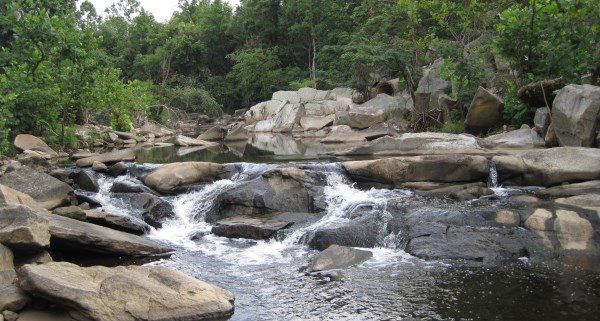Cathy Ledec
If variety really is the spice of life, my work with Fairfax Master Naturalists is a tasty dish indeed. I engage with many projects throughout the year: as the president of the Friends of Huntley Meadows Park, the chair of the Fairfax County Tree Commission, as an Invasive Management Area site leader and Resource Management Volunteer for the Fairfax County Park Authority, Audubon-at-Home Ambassador, and as President of the Pavilions at Huntington Metro Community Association.
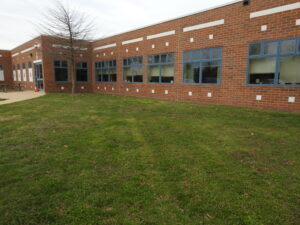
Mt. Vernon Government Center before our project
One of the most rewarding projects has been establishing a Natural Landscaping Demonstration project at the Mount Vernon Governmental Center, in Alexandria, Virginia. I attend meetings at this Fairfax County building frequently, and observed that the landscaping around the building had no variety, included mostly turf grass, and lacked blooming plants. The center needed some TLC! When I mentioned my observations and thoughts to Mount Vernon District Supervisor Dan Storck, he was enthusiastic. So I marshaled resources and my network and went to work.
Next steps towards implementation included preparing a planting plan, with drawings of the landscaping beds; and researching and preparing plant lists. I consulted with fellow Fairfax Master Naturalist (FMN) Betsy Martin, who is also an Audubon-at-Home Ambassador and very knowledgeable about native plants. Betsy provided great guidance on low-impact ways to establish the mulched planting beds. These methods included covering the large areas of turf grass with cardboard or newspaper and covering with 3-4 inches of mulch.
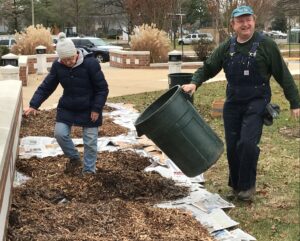
Betsy Martin and George Ledec deep in the mulch
We established the first planting bed in November 2017, with one of Betsy’s friends donating of a huge load of mulch. Consulting with technical experts from the Northern Virginia Soil and Water Conservation District and Earth Sangha was especially important to the research and writing that resulted in our receiving two grants from these organizations for this project. (The grant writing process was fast, only taking a few months).
Someone said to me once, “If you don’t plan, plan to fail.” So plan I did! The first planting event was in early April 2018. At the same time that I was planning for the planting, I started pursuing the needed permissions from the Fairfax County Facilities Management Division (FMD). This process was more challenging than I expected, but I kept the end goal in mind and eventually signed off on the needed Memorandum of Understanding with FMD. I knew that once this was signed, it would pave the way for future projects of this type for my fellow FMNers.
The goals of this project were to restore and improve environmental conditions. Converting turf grass areas to mulched planting beds would result in:
- Improved stormwater management
- Reduced urban heat island effect
- Restoration of wildlife habitat
- Improved visual appearance of the building
- Trees planted to shade the building, reduce summer cooling costs, provide natural privacy screen for staff working inside, and improve the view to the outside for staff working inside
Anticipating questions from the visiting public, I also prepared outreach materials on the project that could be shared with interested visitors.
Concurrently, I was also contacted during the planning phase by a scout leader looking for an outdoor project for his scouts—what great luck!—and an excellent project for this scout troop and their families. This serendipity brought in more than 90 volunteers to establish the planting beds and the spring planting. The scouts dug holes, planted trees, moved mulch, and completed their work in one weekend. Volunteers rock! Thanks to FMNer Patti Swain for her help guiding the scouts.
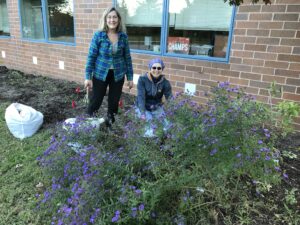
FMNers Maryann Fox and Chris Straub
We did a second planting in the fall of 2018, with thanks to FMNers Christine Straub and Maryann Fox, who helped with weeding and the fall planting. Special thanks to Supervisor Storck and his wife Deb for their help with the planting. Supervisor Storck’s support for this project was key to our success.
We planted over a dozen tree seedlings and more than 100 native plants. There will be continuing need for maintenance, so you’ve not heard the last on this project. You, too, can join with us on our next maintenance day (I’ll send out a note and put it on the calendar), and record service hours to Stewardship project S256.
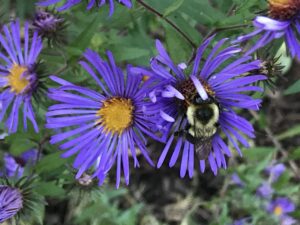
Blooming New England Aster with bumble bee in Summer 2018
This past April, I was honored for my work improving our environment with the 2018 Fairfax County Citizen of the Year award, both a humbling and thrilling recognition.
It remains very rewarding to watch the landscape our little team built fill in, bloom, and attract the birds and the bees. Every time I go by, there is a new flower blooming, with bees in attendance.


